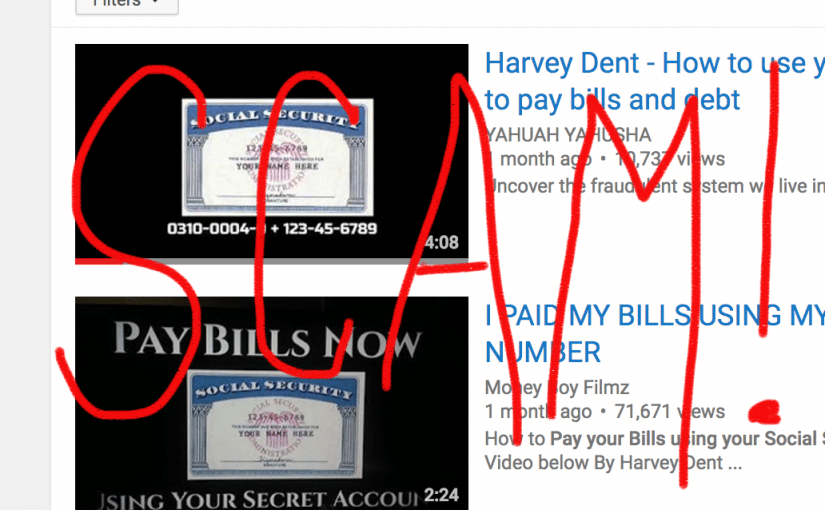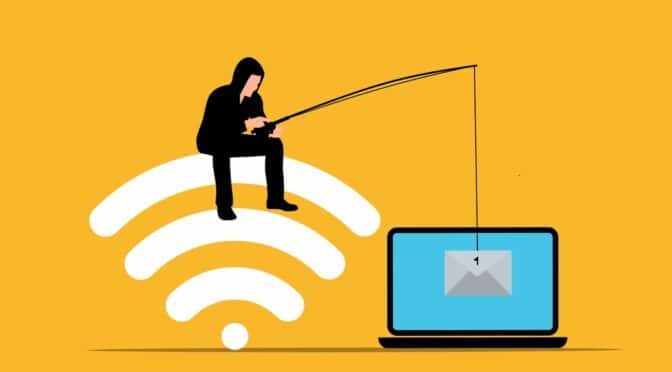by Barbara Nevins Taylor
Consider it a scam and a bad idea to try to pay a bill with your Social Security number or through a Federal Reserve routing number. It could end up costing you money. The Atlanta Federal Reserve issued an alert to warn consumers to stay away from this scam.
YouTube videos, plenty of them, along with online forums and texts, encourage people to use Social Security account numbers and route payments through a branch of the Federal Reserve Bank.
A number of the videos reference “Harvey Dent,” a character who has his own video that tells you that “using your secret Social Security trust account,” you can tap into secret money to pay your bills. The videos go heavy on phony conspiracy theories about big banks and why they don’t want you to know what they do.
Then they show you how to find a Federal Reserve routing number in your area. But the Federal Reserve says, “Consumers do not have bank accounts with the Federal Reserve holding their unpaid Social Security funds, and those funds can not be accessed by consumers.”
The Federal Reserve uses routing numbers to transfer money between banks, not customers. In the alert, the Fed explains what happens if you fall for the scam: “. . . bill payments being attempted using the Fed’s routing numbers are being rejected and returned unpaid. Consumers who have attempted to use the Fed’s routing numbers to pay their bills may be subject to penalty fees from the company they were attempting to pay.”
In fact, people have had to pay late fees and other penalties to companies they thought they had paid.
It’s not clear who if anyone benefits from this. And the National Consumer Law Center warns, “Consumers should be aware of this “too good to be true” scheme and recognize any video, text, email, phone call, flyer, or website describing how to pay bills using information other than their own bank or credit card account number is a scam.”
Law enforcement officials working with Federal Reserve Bank apparently started an investigation. And when we know more, we’ll post it here on ConsumerMojo.com.



